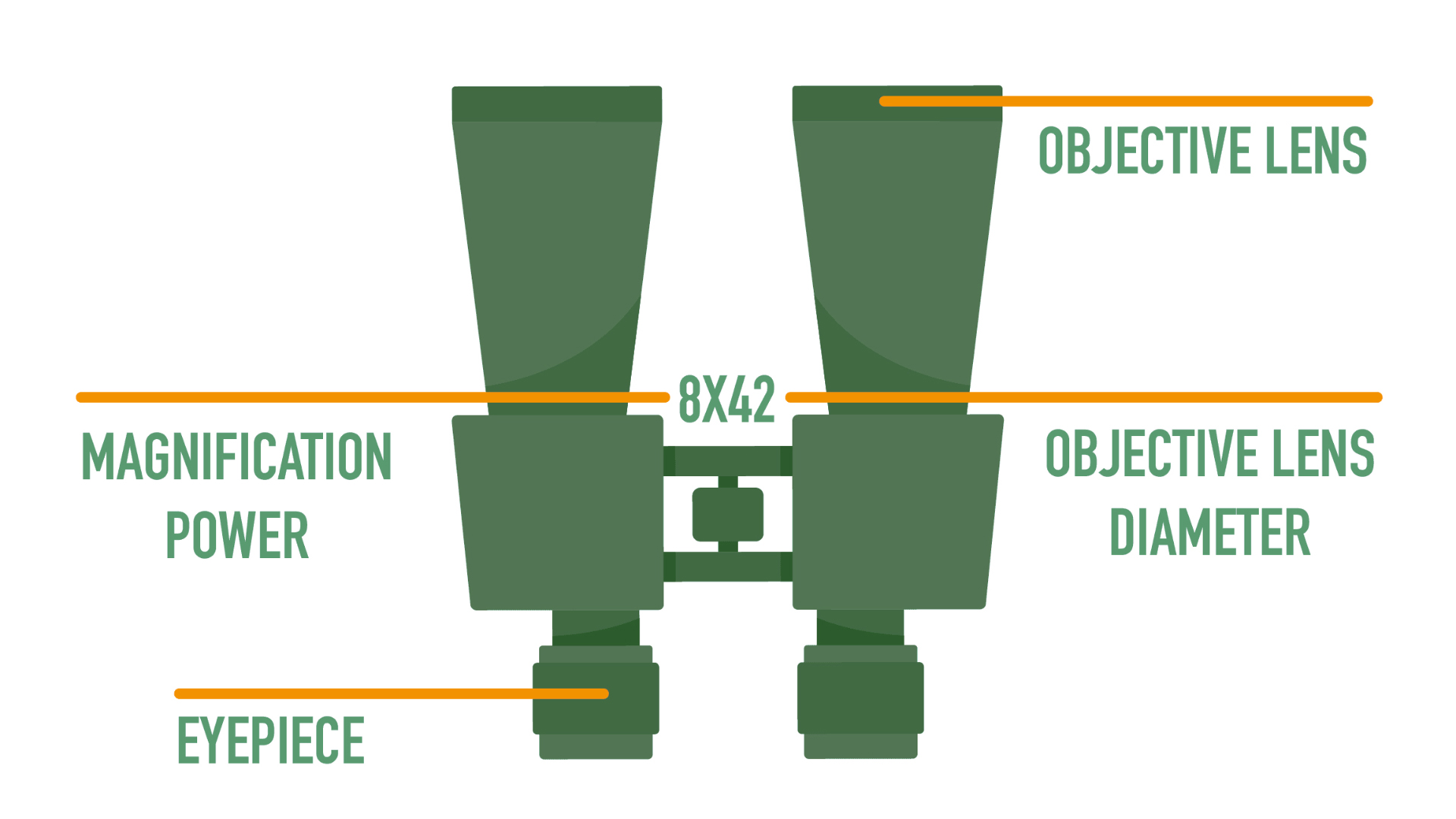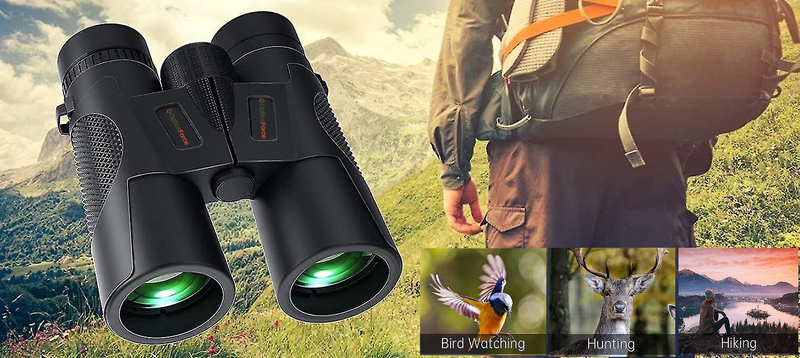Essential Attributes to Search For in Binoculars for Searching
Essential Attributes to Search For in Binoculars for Searching
Blog Article
The Value of Binoculars in Education and Scientific Research Study: Just How These Optical Instruments Contribute to Discovering and Exploration
The integration of field glasses right into academic setups and clinical study is commonly neglected, yet their contribution to improving observational abilities is significant. These tools connect the void between theoretical ideas and useful application, enabling pupils and scientists alike to involve with their settings in a substantial fashion. In disciplines varying from environmental science to astronomy, field glasses act as essential devices that advertise inquiry and critical thinking. Nonetheless, the wider ramifications of these optical tools on finding out outcomes and scientific expedition warrant even more examination, especially as we consider their possible fit future scientific undertakings.
Enhancing Observational Skills
In educational and research settings, using field glasses dramatically boosts empirical abilities amongst students and specialists alike. These optical instruments assist in a much deeper understanding of distant topics, allowing users to observe information that would otherwise stay unseen. By utilizing binoculars, learners can take a look at wild animals, astronomical sensations, and geological developments, fostering a much more profound link to the subject.
Binoculars act as essential devices in area studies, motivating students to engage actively with their environment. Via enhanced observation, they can gather data better, bring about improved logical abilities. This hands-on experience permits the development of vital reasoning, as pupils have to interpret what they see and associate it to theoretical understanding.

Bridging Concept and Technique
Empirical abilities developed through the usage of field glasses normally bring about an extra profound integration of academic knowledge with sensible application. By engaging in direct monitoring, students can transform abstract concepts into tangible experiences. This harmony cultivates a deeper understanding of scientific concepts as students attach theoretical structures with real-world phenomena.
As an example, when studying bird biology, students can apply their expertise of bird composition and habits via the lens of field glasses, observing qualities such as plumage variant, feeding habits, and migratory patterns. This direct engagement not just reinforces theoretical principles however likewise grows important reasoning and analytical skills.
Additionally, the use of field glasses motivates students to develop hypotheses based on their monitorings, thus improving their clinical inquiry skills. They can proactively examine these theories in the field, leading to an extra experiential knowing setting that promotes interest and expedition.
In essence, field glasses work as a crucial device in connecting the space in between class knowing and fieldwork - Binoculars. They equip trainees to come to be energetic individuals in their education, urging a holistic strategy to comprehending the all-natural world and its complexities. Thus, the assimilation of concept and method is critical for promoting browse around these guys educated and involved learners
Applications in Environmental Science
Using field glasses in environmental science enhances the capability to observe and evaluate communities with greater precision. These optical tools are crucial for carrying out field studies, allowing scientists to keep an eye on wild animals populations, analyze plant health and wellness, and examine environment problems without disturbing the native environment. Field glasses help with the identification of species at different ranges, enabling researchers to collect critical data on biodiversity and actions.
In ecological study, binoculars are essential tools for ornithologists examining bird habits and migration patterns. They make it possible for researchers to record monitorings over extended periods, adding to important longitudinal research studies - Binoculars. Additionally, field glasses play an important duty in habitat evaluations, as they permit for the thorough observation of plant communities and their communications within ecosystems
Ecological educators additionally gain from field glasses, as these tools boost experiential discovering possibilities. Students can involve straight with their environments, fostering a deeper gratitude for ecological systems. By including binoculars into curricula, teachers can inspire the future generation of environmental researchers.
Role in Astronomy Education
Using field glasses in astronomy education and learning provides an accessible gateway for pupils and enthusiasts to discover celestial phenomena (Binoculars). Unlike large telescopes, field glasses are mobile, straightforward, and fairly affordable, making them a perfect introductory tool for observing the night sky. Trainees can quickly involve with the universes, cultivating a hands-on understanding experience that boosts their understanding of huge ideas
Binoculars allow individuals to observe a selection of holy items, consisting of the Moon, worlds, and celebrity clusters. Importantly, field glasses offer as a bridge to more complex astronomical tools, providing fundamental experiences that can trigger deeper rate of interest in the area.
In instructional setups, led binocular sessions can advertise group collaboration and discussion, boosting the learning experience. The shared experience of observing celestial bodies can cultivate a feeling of area amongst learners. On the whole, field glasses play an essential function in debunking astronomy, making it approachable and engaging for people whatsoever levels of education and moved here learning.

Motivating Curiosity and Questions
Field glasses not just assist in the monitoring of holy phenomena but likewise fire up a sense of curiosity my site and inquiry among students. By offering a closer take a look at remote items, binoculars motivate learners to ask concerns and explore the atmosphere around them. This tool transforms passive understanding into an active, appealing experience, cultivating a deeper understanding of clinical ideas.
When trainees make use of field glasses to observe wildlife, landscapes, or astronomical items, they establish observational skills that are vital for scientific inquiry. The act of concentrating on certain details triggers them to create theories, conduct investigations, and draw verdicts based upon their monitorings. This process not just improves their crucial thinking abilities however additionally nurtures a long-lasting interest for exploration.
In addition, field glasses can connect the void between theoretical knowledge and real-world application. As trainees observe sensations firsthand, they can attach classroom learning to practical experiences, making education and learning more appropriate and meaningful. Eventually, making use of binoculars in instructional settings works as a stimulant for inquisitiveness, empowering trainees to go after expertise with interest and fostering a feeling of marvel about the globe around them. By doing this, binoculars play a crucial role in motivating future generations of scientists and thinkers.
Verdict
In recap, binoculars act as necessary devices in education and clinical research study, dramatically boosting observational skills while bridging the gap in between academic knowledge and practical application. Their diverse applications in areas such as environmental scientific research and astronomy highlight their relevance in fostering interest and query amongst pupils. By helping with thorough evaluations of far-off topics, binoculars not just influence the following generation of scientists yet also grow an extensive recognition for exploration and the clinical method.
Report this page